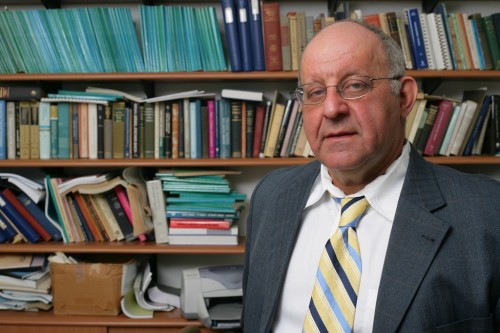The Rothschild Prize has been awarded since 1959 by Yad Hanadiv (Rothschild Family Foundations) in order to recognize the achievements of researchers in various fields of knowledge and to encourage them in their work. The amount of the prize - 50 thousand dollars for each winner

Rothschild Prize in Chemical Sciences and Physical Sciences
The prize is awarded to Prof. Shlomo Havlin from the Department of Physics, Bar Ilan University. Prof. Heblin is one of the world's leading researchers in the field of statistical physics, he broke new ways of understanding complex systems and their importance in nature with the help of networks, and became famous for his extraordinary skills in solving complicated problems and developing complicated work methods. Among his significant studies, we can mention a study that revealed special patterns in DNA, which later led to the understanding of the function of large parts of DNA that were considered non-functional.
In the same topic on the science website:
- Prof. Shlomo Havlin offers a way to solve the problem of viruses in cell phones
- When will the next earthquake occur?
Rothschild Prize in Life Sciences
The award is given to Prof. Eli Keshet from the School of Medicine, Hebrew University of Jerusalem. Prof. Keshet is considered one of the most creative scientists in the field of medical research thanks to the original breakthroughs he achieved in the study of the biology of blood vessels and cancer research. The mechanistic insights acquired in his laboratory about the ability to inhibit the formation of blood vessels, which are essential for the nourishment of the cancerous tumor, made a major contribution to the development of anti-cancer drugs.
A new drug succeeds for the first time in inhibiting cancerous tumors
Rothschild Prize in Mathematics/ Computer Science and Engineering
The award is given to Prof. Shlomo Shamai from the Faculty of Electrical Engineering, Technion, for his original and extraordinary research in the framework of information theory, the mathematical theory of communication, which is currently used in the most advanced communication technologies.
The IEEE award to Prof. Shlomo Shamai
Rothschild Prize in the Social Sciences
The award is given to Prof. Avner de Shalit from the Faculty of Social Sciences, Hebrew University of Jerusalem, for his groundbreaking contribution to the expansion of political theory into new areas, and in particular for his research on future generations as political actors and the rising political power of the city at the expense of the state.
The winners will receive the awards at a ceremony that will be held in the Knesset, with the participation of Lord Jacob Rothschild and the Minister of Science, Technology and Space MK Yaakov Perry, on March 23, 2014.
The Rothschild Prize has been awarded since 1959 by Yad Hanadiv (Rothschild Family Foundations) in order to recognize the achievements of researchers in various fields of knowledge and to encourage them in their work. A $50,000 prize is awarded as a token of appreciation for original and exceptional research work in five different fields: mathematics/computer science and engineering, chemical and physical sciences, life sciences, humanities and Jewish sciences.
The Council for the Rothschild Awards has eight members and consists of representatives of the Israeli government, the Rothschild family, academic institutions in Israel and the Israeli National Academy of Sciences, and is headed by Prof. Eitan Kohlberg.
Among the winners of the prestigious prize in the past are two Nobel laureates - Prof. Ada Yonat and Prof. Dan Shechtman, the current president of the Israel National Academy of Sciences, Prof. Ruth Arnon, and the researcher of the natural substances that influence human behavior and are found in cannabis - Prof. Raphael Meshulam.
